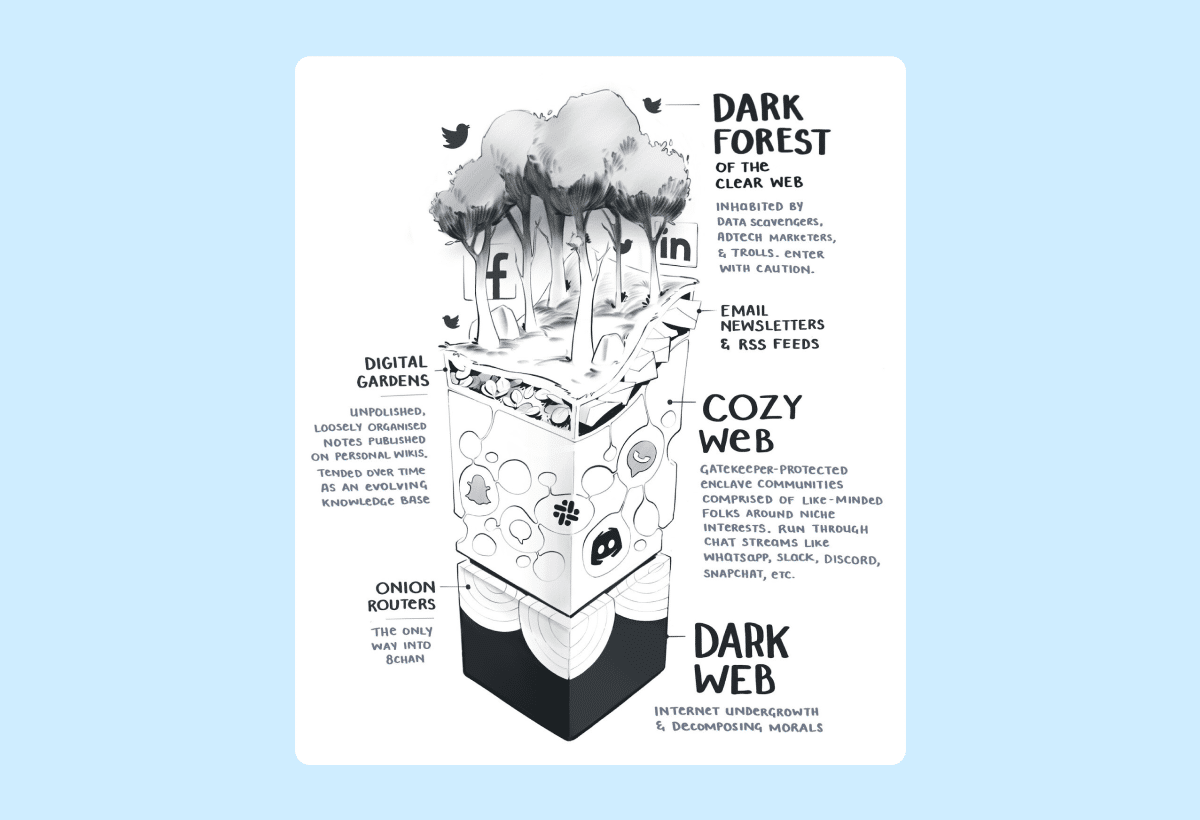Have you ever wondered if the internet is less alive than it used to be?
That’s what the “Dead Internet Theory” suggests. It claims that a lot of the web is now controlled by bots and artificial intelligence, not real people.
This theory, while spooky, makes us think about how we connect and do business online.
So, what does this mean for business owners and those looking to start a business? Let’s dive in.
The Internet: Full of Bots?

The Dead Internet Theory argues that the internet is becoming filled with non-human interactions.
Bots and AI-generated content dominate many platforms.
This can make it tough for genuine connections. Imagine trying to talk to someone at a party, but most of the guests are robots.
That’s a bit like what this theory describes.
As more content is produced by AI, people are shifting away from public spaces online and moving to closed communities. Think of these as private clubs where only real humans are allowed.
Places like Discord, Slack, Skool, Circle, WhatsApp, and Telegram are becoming the new hangouts. Private newsletters on SubStack, Beehiv, and LinkedIn are also gaining popularity.
Why Closed Communities Matter

Source: Maggie Appleton's "digital garden"
So, why are closed communities gaining popularity?
It’s simple: people crave authentic interactions.
In these smaller, private groups, members can have real conversations without the noise of bots and AI.
For business owners, this shift is crucial.
Traditional methods of reaching customers, like through social media ads or direct messages, might not be as effective as before. Instead, connecting in these private spaces can be more effective.
The New Cold Outreach

Cold outreach is when businesses reach out to potential customers who haven’t shown interest yet.
In the past, this has been through email or social media messages. But now, the game is changing.
As users flock to private communities, businesses must follow. Cold outreach in these spaces can feel more personal and less like spam.
Imagine knocking on someone’s door unannounced versus meeting them at a small gathering. The latter feels more natural and welcoming.
Making Cold Outreach Work
Now, how can businesses effectively use cold outreach in these private communities? Here are some tips:
- Join the Conversation: Don’t just jump in and start selling. Spend time getting to know the community. Participate in discussions, offer help, and build trust.
- Be Genuine: People can spot a fake from a mile away. Be honest about who you are and what you’re offering. Share your story and why you’re passionate about your business. Authenticity wins hearts.
- Offer Value: Give before you take. Share valuable information or resources that can help the community members. This builds goodwill and positions you as a helpful expert.
- Respect the Space: Each community has its own rules and culture. Make sure you understand and respect them. Don’t be the loud, obnoxious guest who doesn’t fit in.
The Future of Cold Outreach

As more users seek refuge in closed communities, cold outreach will evolve. Businesses that adapt to these changes will thrive.
The key is to be adaptable. Understand where your audience is and meet them there.
This shift towards private spaces might seem daunting, but it’s also an opportunity. It’s a chance to connect on a deeper level with your audience.
The future of cold outreach is all about quality over quantity. Instead of casting a wide net, focus on building genuine relationships.
This may take more time and effort, but the rewards are greater. Real connections lead to loyal customers.
Wrapping Up
The internet may feel more like a ghost town filled with bots, but this opens new doors for businesses. By embracing closed communities and focusing on genuine cold outreach, you can stand out.
The world of business is changing, but with a little creativity and a lot of heart, you can navigate these shifts successfully.
So, next time you hear about the Dead Internet Theory, don’t panic. Instead, see it as a sign to rethink how you connect with your audience.
Dive into those private communities, be genuine, and build real relationships.
After all, even in a world of bots, people still crave human connection.

